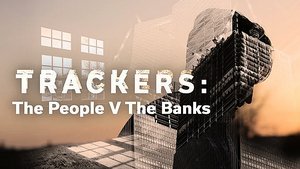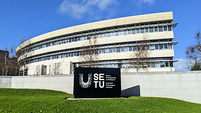'You had to sign it': Families forced into confidentiality clauses after tracker mortgage appeals, RTÉ finds

Eva Osborne
Monday's concluding episode of the RTÉ documentary series Trackers: The People v The Banks is set to examine why many of the same banks involved in the biggest consumer overcharging scandal in the history of the State use confidentiality clauses to potentially stop those most affected from sharing their stories.
The actions of the banks during the tracker mortgage scandal were, as late as October 2017, being labelled by the then Minister for Finance Paschal Donohoe as “disgraceful”.
The programme seeks to understand why those worst affected should not be able to unburden themselves without the threat of litigation.
The former chair of the Finance Committee and current Leas-Cheann Comhairle, John McGuinness TD, has called for legislation to be introduced if needed to protect victims of the tracker mortgage scandal.
He said he believes the public interest is not best served by these clauses being used in such agreements and that such clauses should be lifted.
“It would not surprise me to see a bank take on a customer that signed a confidentiality clause that breaches that clause," he said.
"It does worry me, and I think that legislation needs to be introduced to deal with that issue… I think that they need protection."
Cavan couple
Back in 2006, it was a time of great excitement for Sonia and Michael Grace when they bought their forever home in Cavan.
They took out a tracker mortgage to fund the purchase and, a few years later, moved bank and fixed their rate for three years.
But in 2011, when they sought to revert to a tracker mortgage, they were told in no uncertain terms that this was not an option.
Sonia calculated that the difference between what they should have been paying and what the bank were charging them in the first four months was approximately €600 per month.
Had they been let return to their tracker mortgage, Sonia said: “We wouldn’t have had to choose between fuel, food, and coal. Our life ended up spiralling after that unfortunately, downhill.”
It is a familiar tale, told repeatedly to the RTÉ documentary series. However, another concerning aspect to Michael and Sonia’s story has emerged.
As part of the Central Bank’s unprecedented investigation into the tracker mortgage scandal, Sonia and Michael eventually got their tracker back and were paid just over €14,000 in compensation.
They were deeply unhappy with the amounts on offer, which included a payment of €59.99 in recognition of the “time value money” lost to them for the years they went without their tracker.
“All of my health was impacted because of the overcharge, because of the stress. Michael's health as well, you know, and our marriage too, had suffered,” Sonia said.
"“I ended up setting up an office in the sitting room and I said 'This is war.'”
They appealed their case through an independent appeal panel set up and run by their bank, under guidelines issued by the Central Bank.
Sonia answered detailed questions in front of an oral appeals panel. Eventually, they won their case.
They were awarded an additional €64,000 in compensation, a figure which they felt was still nowhere near enough to compensate them, for the trauma they experienced at the hands of their bank.
But when the settlement agreement arrived, it contained a confidentiality clause. They are adamant that they felt obliged to sign it or risk losing their award from the panel.
"You get your award, but then you have to sign this confidentiality agreement where it's a non-disclosure and it's ex gratia payment," Sonia said.
You had to sign it. You weren't given any other choice. It's a gagging order. We didn’t do anything wrong.
“They just want it sort of kept hushed, kept quiet. I think people need to know what people have to go through," Michael added.
The banks say that such clauses are common and allow both sides to maintain the confidentiality of their negotiations and mediated settlements.
Debt campaigner David Hall, whose iCare charity supported Sonia and Michael Grace, personally attended their oral appeal hearing out of solidarity.
He noted that only one in 10 of those who were identified as impacted by the Central Bank investigation went on to pursue an appeal.
“When there was only one in ten appeals, the banks don't want that rising to two and three in ten appeals if people hear there's been some that have been successful,” he said.
He believes such clauses have “one clear intent.”
“That is to be very clear, they're in charge, they're in control. You do as you are told. And if you don't do it, by the way, if you don't sign it, you don't get your settlement, and the whole thing comes unstuck.
"And if you do sign it and breach it at some point in the future, we reserve our position to come and attack you, again. So this is designed to silence people. This is designed to gag them.”
The concluding episode of Trackers: The People V The Banks will run Monday night at 9:35pm on RTÉ One and RTÉ Player.





